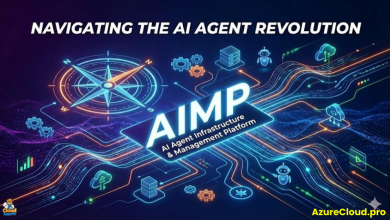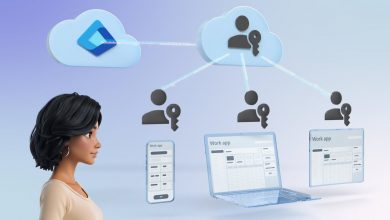Azure AI Foundry: The AI App and Agent Factory
Azure AI Foundry is Microsoft’s comprehensive platform for building, deploying, and managing AI solutions.
 The latest Azure AI Foundry innovations are central to Microsoft’s vision of enabling the Agentic Web.
The latest Azure AI Foundry innovations are central to Microsoft’s vision of enabling the Agentic Web.
Azure AI Foundry is Microsoft’s comprehensive platform for building, deploying, and managing AI solutions.
It is designed to help organizations navigate the rapidly evolving AI ecosystem by providing tools that enhance productivity, streamline operations, and deliver unique value.
The platform supports a wide range of AI applications, from generative AI to data analytics, and is built to address the needs of businesses across industries.
The Azure AI Agent Service is a flagship offering that enables businesses to create AI agents capable of automating routine tasks and enhancing productivity. These agents are designed to integrate seamlessly with enterprise knowledge bases, ensuring that their outputs are grounded in accurate, context-aware information. This is achieved by leveraging a variety of data sources, including unstructured data (e.g., documents, emails), structured data (e.g., databases), private enterprise data, licensed content, and public web data.
Microsoft Fabric Data Agents represent a significant advancement in integrating AI with data analytics. These agents are designed to enhance operational efficiency by combining the power of AI with Microsoft Fabric’s robust data platform. Fabric Data Agents enable organizations to extract actionable insights from their data, automate decision-making processes, and optimize workflows.
The inclusion of NVIDIA NIM (NVIDIA Inference Microservices) in Azure AI Foundry marks a significant step toward optimizing AI performance and cost-efficiency. These microservices leverage NVIDIA’s expertise in GPU-accelerated computing to enhance the speed and scalability of AI workloads.
The service is particularly valuable for organizations looking to streamline repetitive processes, such as customer support, data entry, or content generation. For example, an AI agent could be deployed to handle customer inquiries by pulling relevant information from a company’s knowledge base and delivering precise, personalized responses.



